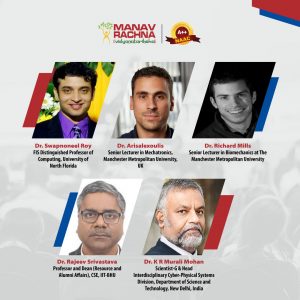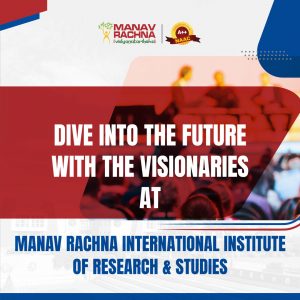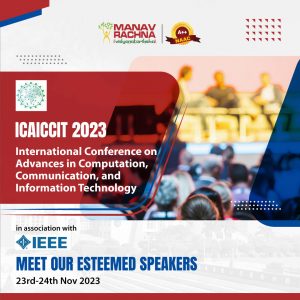MANAV RACHNA INTERNATIONAL INSTITUTE OF RESEARCH AND STUDIES
(Formerly MANAV RACHNA INTERNATIONAL UNIVERSITY )
Deemed to be University under section 3 of the UGC Act,1956
PEOs, PSOs & POs
Guidelines regarding withdrawal and refund of fee for UG, PG and Ph.D for Academic Session 2023-24 – Click here





